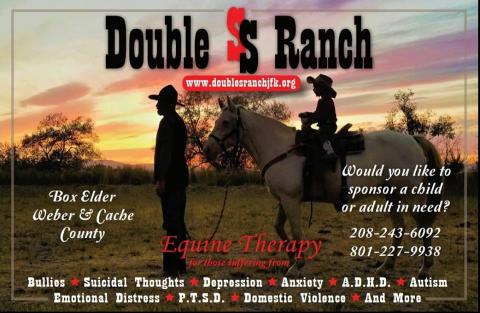
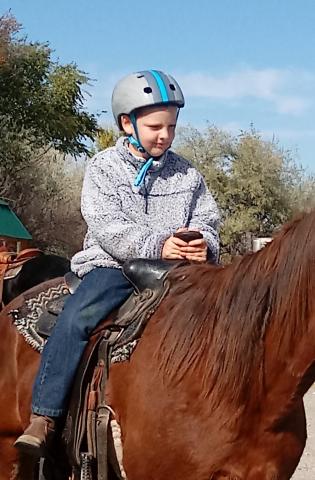
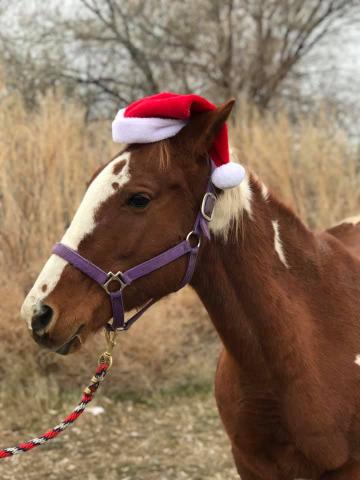
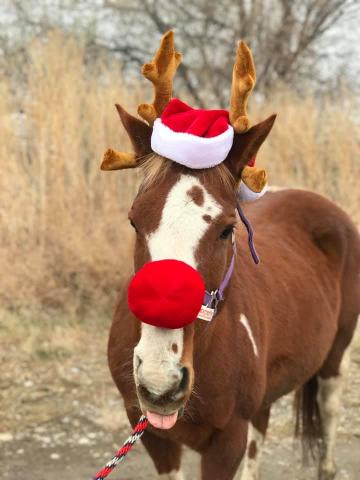
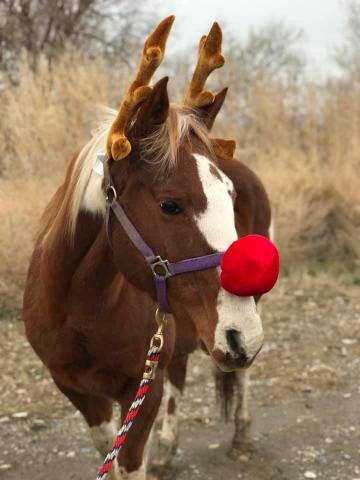
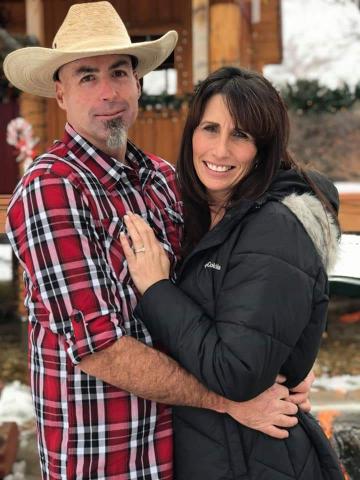
The Double S Ranch has been a big part of our life the last few months. Spencer and Lori are working with many different kids and adults with equine help. Spencer prefers the Fox-Trotting Horses for the guidance they are giving the horses and riders where the horse does the therapy.
The Fox Trotter Horse is often described as the common man's pleasure horse because of its gentle disposition. Fox Trot gait is a comfortable, sure-footed, sliding gait that produces very little movement in the back. This kind of horse is not a high stepping horse, but an extremely sure-footed one. The gait gives the rider little jar since the hind feet slide into place. The Fox Trot is a rhythm gait and the horse can maintain it for long periods of time with little fatigue.
Most of the gaited breeds also have a good temperament as part of their breed description. This quality makes gaited horses a good choice for the new horse person. A horse that is easily handled makes their first horse experience much more enjoyable as well as safer!
Physical limitations (from a disability or injury or just plain back problems) do not interfere with the riders’ ability to enjoy the ride on the horse. Many times, a rider desires the gaited breeds because they simply can’t tolerate the jarring gaits of other horses. Fox Trotter horses are used in many disabled rider programs, due to the same security they can give a rider.
Spencer looks for qualities in his horses, making them just right for the program. Age is just a number, and older doesn't always mean better. Older horses are more likely to be calm and experienced, but they're also more likely to have health and other issues. As with all things, it's a balancing act.
What makes a good therapy horse?
Height vs. Weight carrying ability: The tallest horse is not always the one who can carry the largest rider. A shorter, stockier draft breed can carry 200+ pounds more than a tall, leggy Thoroughbred type who can't carry as much weight and makes it harder for the riders to mount the horse.
Temperament: Horses who are naturally kind, calm, and human-oriented are much more likely to give that "little extra something."
Training and trainability: A therapy horse must have correct manners on the ground and when ridden.
Soundness: Therapy horses must be sound in at least the walk and trot in order to benefit the rider. The horse should be comfortable working at least 2 hours a day under saddle.
Conformation: The conformation of a therapy horse (the way its parts are put together) is only important as it relates to weight carrying ability, soundness, and movement.
Health: Because of a program's limited budget, horses with chronic, expensive health issues are not ideal. Therapy horses should be in good health.
Movement: The reason why therapeutic riding is so effective is because of the natural, rhythmic, and repetitive 3-dimensional movement of the horse.
Spookability: Okay, I made this word up, but it's a great word, and a very important characteristic. A program needs a horse that hardly ever spooks, even though he is exposed to scary things.
Lori’s mom had a stroke a few months ago and she has worked very hard with her physical therapy. With a little coaxing from Lori and Spencer, she gave the Equine therapy a chance. She enjoyed it a lot, over a period of several sessions she had returned to do an evaluation of her progress. They were very impressed with her progress asking what she had done differently. All she said was she had added Equine therapy to the mix, with wonderful progress. This will be great to follow her continuing progress with the added benefits from the horses.
Spencer and Lori have 7 horses, they try and use just the Fox Trotter for Equine riding therapy but at times use others when the Fox Trotters need a break. They have some that do a faster trot than others. It all depends on the rider’s experience and needs. There is a lot of time involved with each horse and person in the program. Many of the client’s parent/caretaker spend time brushing and leading the horses, helping with whatever the Ranch needs at the time. Spreading the word of this wonderful program that has given many a first step in healing. If you would like to help with sponcering someone or just a few dallars toward another person's therapy contact Lori at 801-227-9938 or Spencer at 1-208-243-6092.
We are Family!